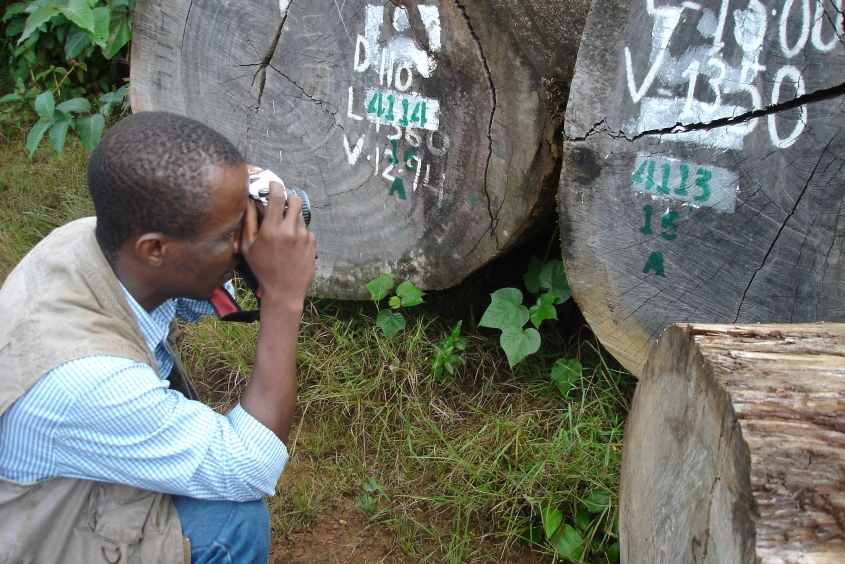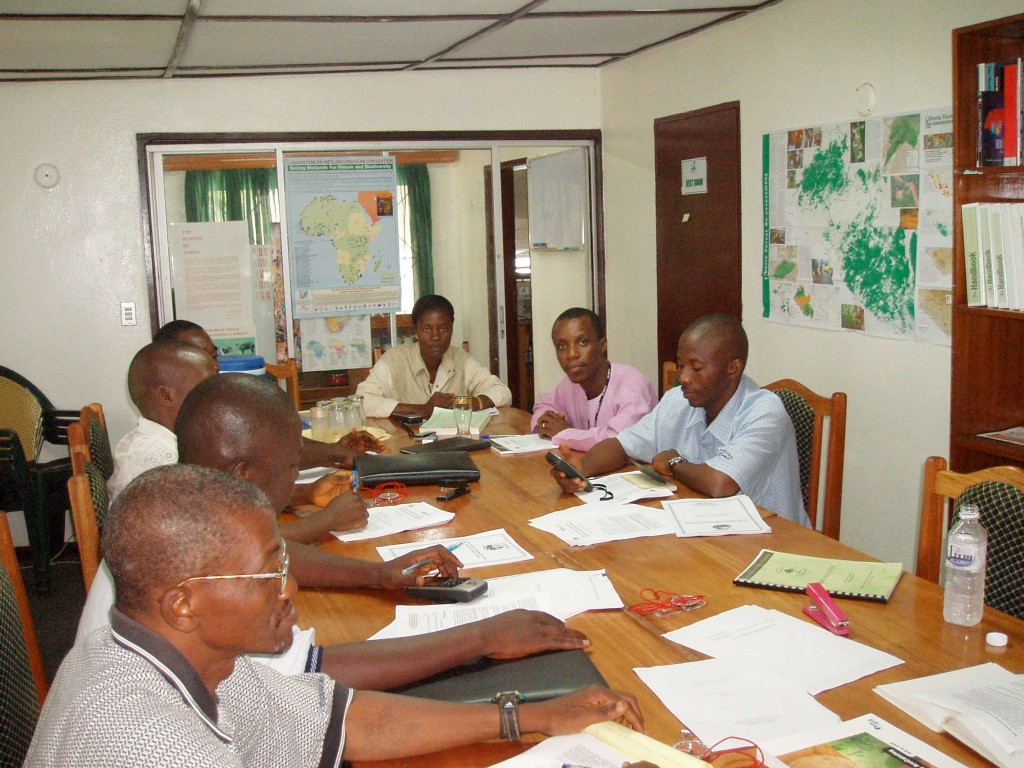Silas Siakor was unable to make the Info-Activism Camp due to other commitments. We caught up with him soon after to learn more about his work supporting environmental justice in Liberia.
Silas Siakor is a campaigner for Community Rights at the Sustainable Development Institute (SDI) in Liberia. The SDI works to transform decision-making processes on natural resource management so that the benefits are shared equally between industry, government and the indigenous people on whose land the resources are found. In 2002 Silas Siakor risked his life to collect evidence of falsified logging records, illegal logging practices, and arms smuggling associated with the timber industry. He fled the country in 2003 having publicised evidence that Liberia’s former president, Charles Taylor, was using illegal logging to fund a civil war. In 2004, Silas Siakor returned to Liberia to work with the country’s new leadership on national timber policy reform.

Silas says that the use of accurate evidence is critical to effective campaigning: “If you are going to do any kind of effective advocacy, you’ve got to be able to convince people who would otherwise not agree with you that there is a need to act and that there is a problem. The only way that you can demonstrate that there is a problem is by having very strong evidence that points to the negative consequences of what you are looking into”.
In outlining his own experiences in using evidence, Silas explained to us his role in events in 2003 that led to the UN Security Council extending sanctions on Liberia and imposing an international ban on the export of Liberian timber.
Working with colleagues at the national level, a network of community activists, and company insiders, Silas forensically examined details of the amounts of timber produced, how much was exported and how much tax was being paid on profits. In doing so, their forensics work identified a huge discrepancy between how much timber was declared and how much was actually exported. “To our surprise we found that a very large proportion of the timber was unaccounted for, that is, in terms of what was produced according to the inventories and what was exported… the numbers didn’t add up. The import data from Europe recording timber from Liberia was higher than what [suppliers in Liberia said they] were exporting, which is just not possible”.
Silas and his colleagues calculated that the European import figures were accurate because they felt that importers would not want to pay higher taxes by declaring more timber than the actual imported amount: “They would not want to pay more than they had to so their data was much more believable than [the Liberian] data and in this case the gap was just far too wide…But without very strong evidence, nobody listens to you. In this case just being able to show the scale of the problem in terms of how much timber was unaccounted for was important because this was government data. So we were able to show people that, ‘hey, something is wrong here’.”
Having exposed the initial corruption in 2002, Silas was then invited to work with the Liberian Government Forestry Development Authority to reform the sector after the resignation of Charles Taylor in 2003. Again Silas used the opportunity to expose links between logging and arms deals: “What we did was to use the opportunity to show to the public how big the problem was. And we succeeded. Between July 1999 and July 2000 we were able to work out payment instructions for this one timber company amounting to around $US8 million that had been wired to different bank accounts. And those documents were made available to the UN panel of experts investigating the sector. When they followed up investigating those accounts they were able to confirm that all of them were tied to Charles Taylor. We were able to show that money was being transferred to accounts that Taylor had control of and there were a couple of them that were accounts of arms dealers. In one case there was a military mercenary from South Africa, to whom Taylor had wired about $US500,000 for unspecified duties he had performed on his behalf.”
This revelation sparked further investigations into the affairs of the forestry sector. “Because of the evidence that we had discovered…the call for a much more independent review of the sector was supported by all the donors and in the end we found that about $US64 million was unaccounted for.” This exposure of wholesale corruption in the forestry sector prompted the new Liberian President, Ellen Johnson-Sirleaf, to cancel all timber contracts in 2006 until the corruption issue was addressed.
This work won Silas the Goldman Environmental Prize in 2006, a prize established to honour grassroots environmental heroes.
While the new Liberian government has done much to address the issue of transparency and accountability, Silas Siakor is still critical of his government’s performance. He maintains that while the authorities have made changes to the law, they are yet to enforce these changes. “There is evidence out there, both internationally and locally, that the government has performed very, very poorly”. He cites news regarding a recent 2013 report from international firm Moore Stephens that revealed that over 90% of government contracts for natural resource extraction were not compliant with Liberia’s own laws.
Reflecting on what’s changed since his early investigations, Silas notes technology access and development has changed what’s possible and how they work. “I had my first phone in 2003 and at that time you needed at least $US80 to make a call. Now we use GPS in the field to map out and document different practices that might be illegal. Then we didn’t have cameras − now we do. So we do a lot more photography. We also network more with a whole range of international collaborators so there’s far greater reach in terms of the information we generate and our ability to investigate these companies in terms of their track record in different parts of the world. There’s much more information exchange – all of that made possible by the internet and other means of communication.”
These changes to technology, Silas suggests, have ultimately the ability of the Sustainable Development Institute to work more closely with networks of international activists. “ This means we are not just 100% focusing on what is happening in our own narrow environment in Liberia, but also working within the context of what is happening globally, and that has been very useful.”
Additional Resources:
Sustainable Development Institute, Liberia
A bio of Silas after he won the Goldman Environmental prize
Story and additional research by Enda Murray (@endamurray) and Tanya Notley (@tattinot).
Photos credited to Goldman Environmental Prize

